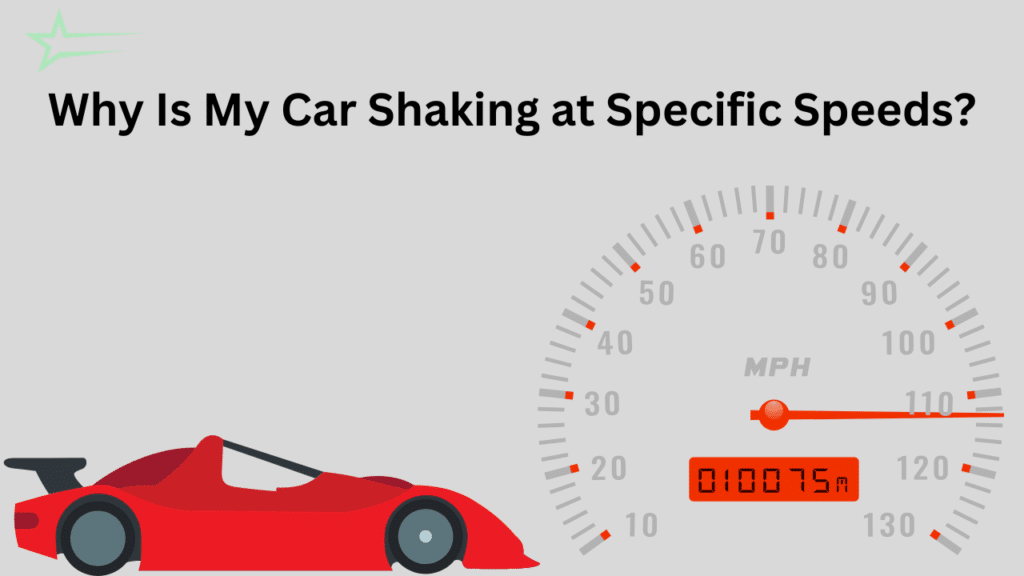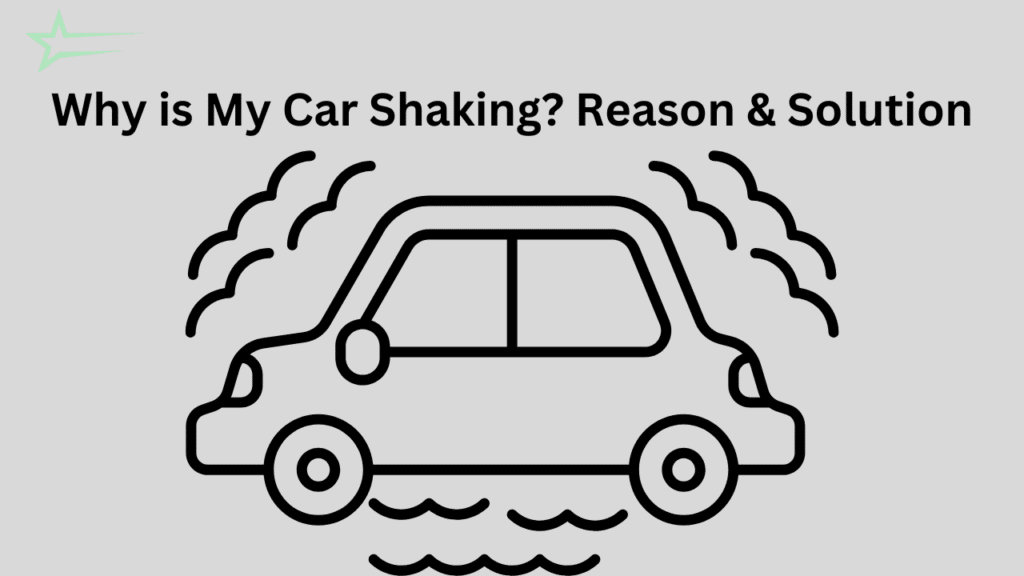Car shaking is a common issue that drivers encounter, and it can arise from various mechanical or technical problems. Whether the vibrations occur while driving, idling, accelerating, or at certain speeds, understanding the cause is essential to address the issue effectively.
This comprehensive guide explores the reasons behind car shaking, provides solutions for each scenario, and discusses preventive maintenance to keep your vehicle running smoothly.
Why Does My Car Shake?
Car shaking can result from issues in different parts of your vehicle. Below, we cover the most common scenarios and their causes:
1. Car Shaking While Driving
If your car vibrates while driving, it’s likely due to one or more of these reasons:
- Unbalanced Tires: When tires are unevenly balanced, they cause vibrations that intensify with speed.
- Wheel Misalignment: Misaligned wheels lead to uneven tire wear and noticeable shaking.
- Damaged Suspension Components: Worn shocks, struts, or bushings can cause instability.
Solution:
- Balance and align your wheels regularly.
- Inspect suspension components and replace any damaged parts.
- Rotate tires to ensure even wear.
2. Car Shaking While Accelerating
Shaking during acceleration often indicates drivetrain or engine problems:
- Damaged CV Joints: Constant velocity (CV) joints transfer power to the wheels. If they’re worn, vibrations occur under load.
- Engine Misfires: Faulty spark plugs, ignition coils, or fuel injectors disrupt engine performance.
- Transmission Problems: In automatic cars, transmission issues can cause shaking.
Solution:
- Replace worn CV joints.
- Perform an engine tune-up to fix misfires.
- Service the transmission and address any malfunctions.
3. Car Shaking While Idling or Parked
If your car vibrates when stationary, it could be due to:
- Faulty Engine Mounts: These secure the engine to the frame. Worn mounts cause the engine to vibrate excessively.
- Idle Speed Issues: An incorrect idle speed can result in vibrations.
- Dirty Fuel Injectors: Clogged injectors affect fuel delivery, leading to uneven idling.
Solution:
- Replace worn engine mounts.
- Clean or replace fuel injectors.
- Adjust idle speed using professional diagnostic tools.
4. Car Shaking at Low Speed
At lower speeds, shaking may stem from:
- Brake Rotor Issues: Warped brake rotors cause vibrations, especially during braking.
- Low Tire Pressure: Uneven or low tire pressure affects stability.
Solution:
- Resurface or replace warped brake rotors.
- Check tire pressure and maintain recommended levels.
5. Car Shaking at High Speed
At higher speeds, shaking becomes more noticeable due to amplified issues:
- Unbalanced Wheels: Even slight imbalances cause noticeable vibrations.
- Driveshaft Problems: A bent or damaged driveshaft leads to shaking.
Solution:
- Balance and rotate tires regularly.
- Inspect and repair the driveshaft if necessary.
6. Car Shaking When Turning It On
Shaking upon startup is often linked to:
- Weak Battery or Alternator: Electrical issues disrupt smooth engine operation.
- Dirty Air Filters: Poor airflow affects engine combustion.
Solution:
- Test and replace a failing battery or alternator.
- Clean or replace air filters regularly.
Common Reasons for Car Shaking and Solutions
| Scenario | Possible Cause | Solution |
|---|---|---|
| Driving | Unbalanced tires | Balance and align tires |
| Accelerating | Engine misfire | Perform a tune-up |
| Idling/Parked | Faulty engine mounts | Replace engine mounts |
| Low Speed | Warped brake rotors | Resurface or replace rotors |
| High Speed | Driveshaft problems | Inspect and repair driveshaft |
Why Is My Car Shaking at Specific Speeds?

Shaking at certain speeds, such as 60 mph, typically points to:
- Tire Issues: Unbalanced or damaged tires.
- Wheel Bearings: Worn wheel bearings create instability.
- Bent Wheels: Even minor bends can cause vibrations at high speeds.
Solution:
- Balance and inspect tires for damage.
- Replace worn wheel bearings.
- Repair or replace bent wheels.
Preventing Car Shaking
Regular maintenance can prevent many causes of car shaking. Here’s what you should do:
- Inspect Tires and Wheels: Balance, rotate, and align tires every 5,000 to 7,000 miles.
- Schedule Tune-Ups: Regular engine maintenance prevents misfires and fuel issues.
- Check Suspension: Inspect shocks, struts, and bushings for wear and tear.
- Replace Fluids: Ensure engine oil, transmission fluid, and brake fluid are at optimal levels.
For a detailed guide on car maintenance, check out Twist Grip Mechanical Car Throttle Control Installation.
FAQs
Why is my car shaking when I hit 60 mph?
Unbalanced tires or misaligned wheels are common causes.
Why does my car shake when accelerating?
Likely due to drivetrain issues such as damaged CV joints or engine misfires.
Can automatic cars shake?
Yes, transmission problems or engine issues can cause shaking in automatic vehicles.
What should I do if my car shakes at low speeds?
Inspect brake rotors for warping and check tire pressure.
Conclusion
Car shaking is a sign that something is wrong, whether it’s with the tires, engine, or suspension. Diagnosing the issue early is key to avoiding more serious problems.
Regular maintenance, prompt repairs, and attention to unusual vibrations will keep your car running smoothly.
For more car troubleshooting tips, explore How to Sell a Car with a Loan.
A shaking car is not just an annoyance; it’s a clear indicator of underlying issues that need attention. Ignoring the problem can lead to increased repair costs and potentially dangerous driving conditions.
Whether it’s unbalanced tires, engine misfires, or faulty components, understanding the root cause helps ensure your safety on the road and extends your vehicle’s lifespan.
Addressing car vibrations promptly also prevents further wear and tear on connected systems, saving you from expensive fixes down the line. Regular maintenance like tire balancing, suspension inspections, and engine tune-ups are proactive steps to avoid shaking.

Additionally, always pay attention to the specific conditions under which the shaking occurs—while driving, idling, accelerating, or at high speeds—because this provides clues to the problem.
Lastly, a reliable maintenance schedule not only keeps your car in optimal condition but also ensures a smooth and safe driving experience.
Don’t wait for minor issues to escalate into major repairs. Act quickly, seek professional help when needed, and prioritize your vehicle’s health to maintain your peace of mind on the road.
For more solutions on maintaining your car, explore our guide on How Do You Find a Class Code on a Car?.










